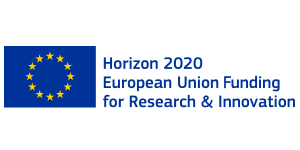Sustainability
The ten novel biobased value chains developed in the GRACE project will be assessed for their sustainability. This will include social, economic and environmental dimensions in order to measure and improve the holistic performance of the value chains, increasing their benefits and minimizing any negative impacts.

Social Sustainability
One important social benefit of the project is the use of marginal land previously uncultivated. This guarantees that no food or feed crops are displaced, thus posing no risk to food security. For example, rural areas in Croatia, which have been abandoned since the war, will be cultivated. This could present an incentive (e.g. in form of jobs) for the population to return to these areas, offering a further benefit of the implementation of the new value chains.
However, in addition to positive impacts, there may also be negative social effects. In order to assess all social impacts of the implementation of the value chains, a Social Life-Cycle Assessment (S-LCA) will be conducted according to the United Nations Environment Programme (UNEP) guidelines. This will be done for all ten biobased value chains analysed in this project.
Social benefits
The implementation of the GRACE project offers several social benefits for the stakeholders involved in the value chains and for society as a whole:
- No risk to food security (through use of marginal land)
- Creation of jobs in rural areas
- Strengthening of the local economy
- Development of novel biobased medicine
- Advantages for farmers through better scheduling of workload peaks

Environmental Sustainability
The unrestrained human use of fossil resources leads to a whole range of environmental issues, including climate change, one of the gravest problems of our time. The substitution of fossil-based with biobased value chains, such as those analysed in this project, is seen as one way of mitigating these consequences. However, as the controversy surrounding first-generation biofuels has shown, this substitution is not always necessarily sustainable. To assess and compare the potential impacts on the environment, a Life Cycle Assessment (LCA) will be conducted. LCA is a globally recognized technique standardized by two ISO norms (14040/44). The results of this assessment will not only enable a comparison of the environmental performance of the biobased and fossil value chains, but also the identification of environmental hot spots which need to be tackled for their further optimization.
Environmental benefits
The substitution of fossil-based through the novel biobased value chains will result in a number of benefits for the environment:
- Significant carbon mitigation potential
- Sequestration of carbon in the soil
- Comparably low environmental impacts
- Advantages for biodiversity
- Improvement of soil quality

Economic Sustainability
One of the main problems hindering the market penetration of biobased products is that their production is often more expensive than that of their fossil-based counterparts. In order to determine the main cost drivers and thus identify possible improvement options, the holistic costs associated with a product or service over the whole life cycle need to be assessed. This will be done in the GRACE project through the application of a Life-Cycle Cost (LCC) approach in accordance with the Code of Practice (COP) of the Society of Environmental Toxicology and Chemistry (SETAC). The COP defines environmental Life-Cycle Costs as “all costs that are associated with the life cycle of a product that are directly covered by one, or more, of the actors involved in the products life cycle.”
Economic benefits
The ten biobased value chains assessed in this project will lead to numerous economic benefits for the stakeholders involved:
- Use of marginal land with low land lease prices
- Low production costs due to the cultivation of low-input high-output crops
- Development of new products and markets
- Supreme features of new products justify higher prices for biobased alternatives
- Dependency on fossil-fuel imports is reduced
Funders
The GRACE project has received funding from the Bio-Based Industries Joint Undertaking (BBI JU) under the European Union’s Horizon 2020 research and innovation programme under grant agreement No 745012.
Bio based Industries Consortium

Bio based Industries Public-Private Parnership

European Union



